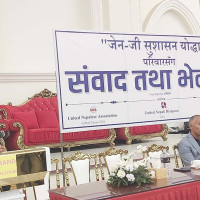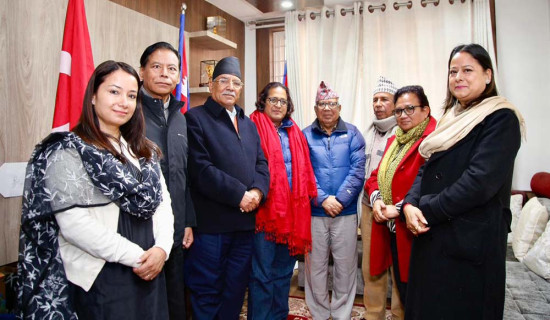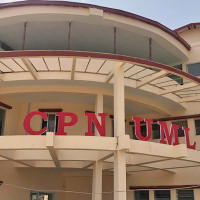- Saturday, 24 January 2026
Act In True Republican Spirit
British political scientist Sir Vernon Bernard Bogdanor says, "Monarchy is, in its purest form, a state ruled by a single, absolute hereditary ruler." In contrast, the republic is the supremacy of the people. In a monarchy, the monarch claims to be the supreme authority, the source of the country's sovereignty, and above the law. The hereditary system creates division and inequality in society and the nation. However, the republican system is a form of government in which people are sovereign, and elected representatives possess power and rule the country. In a republican form of government, nobody is above the law, and all citizens are equal in the eyes of the law. This is the fundamental difference between a monarchy and a republic form of government.
Democracy is people's rule, and it is only in the republican system that people are sovereign and politically equal. A monarchy is a hereditary system that does not accept people's sovereignty. Monarchy is a feudal institution in which full democracy is not possible. A person born in a particular clan and family becomes the ruler irrespective of qualification, ability, and character. It is only in the republican system that a person is chosen based on competition and quality.
There are only 29 countries, excluding some commonwealth states, in the world that have a monarchical form of government. Of them, some are constitutional, and the majority are absolute monarchies. However, the remaining countries, or more than 160, are republics. Although not all republican countries are faring better in economic development and governance, the republican form, in principle, is considered better.
Vaisali is said to be the first republic in the world, which was established around 600 BC, while the Roman Republic was established in 27 BC as the second republic in the world. The history of the republican system is, therefore, as old as human civilisation. Thus, people have constantly struggled against monarchy, seeking to establish republican government worldwide.
Nepal has a long experience of absolute monarchy. The monarchy always posed a threat to democracy in the country. Nepal remained under a feudal monarchical system until the government was declared a federal democratic republic in 2008. Nepal, in its almost 250 years of history, had the monarchical system declare the King as the source of sovereignty and above the law. In contrast, people were mere subjects only to obey the monarch's order. Kings treated themselves as masters, as though the nation was their private property.
The Nepali people's struggle against monarchy came to fruition on May 28, 2008, as the Constituent Assembly's first meeting declared Nepal a federal democratic republic and abolished the monarchy. This marked the dawn of a new era in Nepal's political history. The dream of the Nepali people came true as Nepal entered into an era of genuine democracy—a democratic republic.
It was true that King Prithvi Narayan Shah played a crucial role in unifying Nepal, for which he is well revered and recognised as the founder of Nepal. However, most of the Shah rulers after Prithivi Narayan Shah were too focused on their personal and family interests rather than the country's overall well-being. Conspiracy and family feuds started among the royal family members, which sometimes led to physical assault. The conspiracy and family feud reached its pinnacle in the Kot Parva, from which Junga Bahadur Rana and his brothers took advantage, giving rise to the dark era of the Rana family oligarchy in 1846. Nepal remained under the Rana family's rule for over a century.
However, a new political chapter started in 1951, with multiparty democracy being introduced in Nepal's history. The 1951 political change abolished the family oligarchy of Ranas. However, it failed to eliminate the hereditary system. The rule was transferred from one family oligarchy to another family rule. Ranas lost the absolute power, but Shahas were, instead, vested with absolute authority.
After returning to the throne following the political change in 1951, the then-king Tribhuvan promised a constitution to be written by the elected representatives of the people or Constituent Assembly. But King Tribhuvan later backed out of his promises. At the same time, his son, King Mahendra, conspired against this and instead gave his constitution, based on which he later disbanded the multiparty system and imposed absolute monarchy in the name of the Panchayat system. The kings might have feared the constituent assembly writing the constitution, and thus, they derailed this process. As a result, the country again came under the King's iron-fist regime for over three decades. During the King's absolute regime, people's democratic and human rights were summarily suppressed and denied. Criticism against the King, royal family members, and the Panchayat system was defined as treason and subject to harsh punishment. Political parties and their activities had been banned. Many of the present senior leadership of CPN-UML and Nepali Congress had been kept behind bars on the charge of treason simply for speaking and acting against the king's tyranny. The present Prime Minister KP Sharma Oli spent 14 precious and youthful years in jail just for his activities demanding democracy in the country.
Despite state repression, people's resistance against the authoritarian regime of the king continued, finally restoring multiparty democracy in 1990. King Birendra, often considered relatively liberal, agreed to be a constitutional monarch, relinquishing his absolute authority. After the royal massacre of 2001, in which King Birendra and his entire family were killed, Gyanendra Shah became a new king. Right from the beginning, he hinted that he would not remain a constitutional monarch. King Gyanendra always tried to act against democracy and the Constitution. He took over absolute power in 2005, declaring himself, sending party leaders to jail and restricting all fundamental democratic and human rights of the people.
People's power is always decisive and most potent. No ruler can withstand the people's power, and those who try to suppress people's voices are ultimately dumped in history's trash. The history of the world is witness to it. Similar things happened in Nepal. As King suppressed the people, the Nepali people rose against it and finally launched a movement against King's tyranny, which succeeded in 2008 in establishing a republican setup. Thus, we are celebrating Republic Day to pay tribute to those who sacrificed their lives for the republican system. But the genuine tributes to the martyrs will only be when we act in true republican spirit.
(Lamsal is former editor-in-chief of TRN and former ambassador)













-original-thumb.jpg)


